Best Vitamins for Brain Memory Philippines

Best Vitamins for Brain Memory in the Philippines
Maintaining optimal brain function and a sharp memory are vital for overall quality of life, regardless of age. While a balanced diet forms the cornerstone of brain health, certain vitamins and nutrients can provide significant cognitive support. In the Philippines, access to these brain-boosting supplements is readily available, allowing individuals to proactively enhance their memory and cognitive abilities. Let’s explore the best vitamins and nutrients for brain health and memory, along with their benefits and how to incorporate them into your routine.
The Power of B Vitamins

The B vitamins are a group of essential nutrients crucial for brain health and cognitive function. They play a pivotal role in energy production, neurotransmitter synthesis, and nerve function.
1. Vitamin B12 (Cobalamin)
Vitamin B12 is critical for nerve function and the formation of red blood cells. Consequently, a deficiency in B12 can negatively impact cognitive function and memory. Studies have linked low B12 levels to an increased risk of cognitive decline and dementia. Therefore, ensuring adequate B12 intake is crucial for maintaining brain health.
Benefits:
Supports healthy nerve function, which is essential for signal transmission in the brain.
Contributes to the formation of myelin, a protective sheath around nerve fibers.
May improve memory and cognitive performance, especially in individuals with deficiencies.
Sources:
Animal products like meat, poultry, fish, eggs, and dairy products are excellent sources.
Fortified plant-based foods such as cereals, plant-based milk alternatives, and nutritional yeast are suitable for vegetarians and vegans.
Supplements are readily available in various forms, including tablets, capsules, and injections.
2. Vitamin B9 (Folate or Folic Acid)
Folate, also known as folic acid in its synthetic form, is crucial for cell growth and DNA synthesis. Furthermore, it plays a significant role in brain development and function. Low folate levels have been associated with cognitive impairment and depression.
Benefits:
Supports healthy brain development, particularly during pregnancy.
Contributes to neurotransmitter production, influencing mood and cognitive function.
May improve memory and cognitive performance in older adults.
Sources:
Dark leafy green vegetables like spinach and kale are rich in folate.
Legumes such as beans, lentils, and peas are excellent sources.
Fortified grains and cereals often contain added folic acid.
Supplements are available, especially for women of childbearing age.
3. Vitamin B6 (Pyridoxine)
Vitamin B6 is involved in numerous metabolic processes, including neurotransmitter synthesis and the regulation of homocysteine levels. Elevated homocysteine levels have been linked to an increased risk of cognitive decline and cardiovascular disease.
Benefits:
Supports neurotransmitter production, including serotonin, dopamine, and norepinephrine.
Helps regulate homocysteine levels, potentially reducing the risk of cognitive decline.
May improve mood and cognitive performance.
Sources:
Poultry, fish, and organ meats are good sources.
Bananas, potatoes, and fortified cereals also contain B6.
Supplements are available, often in combination with other B vitamins.
The Sunshine Vitamin: Vitamin D
Vitamin D is crucial for calcium absorption and bone health. However, it also plays a vital role in brain function. Vitamin D receptors are located throughout the brain, suggesting its involvement in various cognitive processes.
Benefits:
May improve cognitive function, including memory and attention.
May reduce the risk of age-related cognitive decline and dementia.
Supports overall brain health and development.
Sources:
Sunlight exposure is the primary source of vitamin D. Aim for 15-20 minutes of sun exposure daily, without sunscreen, during peak hours. However, this is not always feasible.
Fatty fish such as salmon, tuna, and mackerel are good sources.
Fortified foods such as milk, yogurt, and cereals often contain added vitamin D.
Supplements are available, especially during winter months or for individuals with limited sun exposure.
Essential Fats for Brain Power: Omega-3 Fatty Acids
Omega-3 fatty acids, particularly DHA (docosahexaenoic acid) and EPA (eicosapentaenoic acid), are essential components of brain cell membranes. Therefore, these play a critical role in cell signaling and brain function.
Benefits:
Support healthy brain cell structure and function.
Promote healthy blood flow to the brain.
May improve memory, learning, and cognitive performance.
Possess anti-inflammatory properties, protecting against brain damage.
Sources:
Fatty fish such as salmon, mackerel, sardines, and tuna are excellent sources.
Flaxseeds, chia seeds, and walnuts contain ALA (alpha-linolenic acid), a precursor to DHA and EPA. However, the conversion rate of ALA to DHA and EPA is limited.
Fish oil supplements are a convenient way to increase omega-3 intake.
Algal oil supplements are a plant-based source of DHA and EPA for vegetarians and vegans.
Protecting Brain Cells: Vitamin E
Vitamin E is a powerful antioxidant that protects brain cells from damage caused by free radicals. Oxidative stress, resulting from an imbalance between free radicals and antioxidants, is a major contributor to cognitive decline.
Benefits:
Protects brain cells from oxidative stress.
May slow down age-related cognitive decline.
Supports overall brain health and function.
Sources:
Nuts and seeds such as almonds, sunflower seeds, and hazelnuts are excellent sources.
Vegetable oils such as wheat germ oil, sunflower oil, and almond oil are also good sources.
Green leafy vegetables like spinach and kale contain vitamin E.
Fortified cereals may also contain added vitamin E.
Supplements are available, but it’s important to avoid excessive doses.
Additional Brain-Boosting Nutrients Readily Available in the Philippines
Beyond the vitamins mentioned above, several other nutrients can significantly benefit brain health and memory, and many are easily sourced in the Philippines.
1. Magnesium: The Mineral Multi-Tasker
Magnesium is involved in over 300 enzymatic reactions in the body, including those critical for brain function. It plays a role in neurotransmitter release, nerve transmission, and synaptic plasticity, the brain’s ability to adapt and learn.
Benefits:
Supports healthy nerve function and neurotransmitter release.
May improve memory and learning.
Contributes to relaxation and stress reduction.
Sources:
Dark leafy green vegetables such as spinach and kale are good sources.
Nuts and seeds such as almonds, cashews, and pumpkin seeds contain magnesium.
Legumes such as beans and lentils are also sources.
Whole grains such as brown rice and quinoa provide magnesium.
Dark chocolate is a delicious source of magnesium.
2. Curcumin: The Spice of Life for Your Brain
Curcumin, the active compound in turmeric, has potent antioxidant and anti-inflammatory properties. Research suggests that curcumin can benefit brain health by reducing inflammation and oxidative stress.
Benefits:
Possesses anti-inflammatory and antioxidant properties.
May improve memory and cognitive function.
May protect against age-related cognitive decline.
May enhance mood and reduce symptoms of depression.
Sources:
Turmeric is the primary source of curcumin.
Curcumin supplements are available but have limited bioavailability. Combining curcumin with piperine (found in black pepper) can enhance its absorption.
Turmeric can be easily incorporated into Filipino cuisine, adding flavor and health benefits to dishes.
Here’s a product that contains both curcumin and piperine:

View Product
3. L-Theanine: The Calming Amino Acid
L-Theanine is an amino acid found primarily in green tea. It promotes relaxation without causing drowsiness and can enhance focus and attention.
Benefits:
Promotes relaxation and reduces anxiety.
May improve focus and attention.
May enhance cognitive performance, particularly when combined with caffeine.
Sources:
Green tea is the primary source of L-theanine.
Black tea also contains L-theanine, but in lower concentrations.
L-Theanine supplements are available.
Here is a product containing L-Theanine:
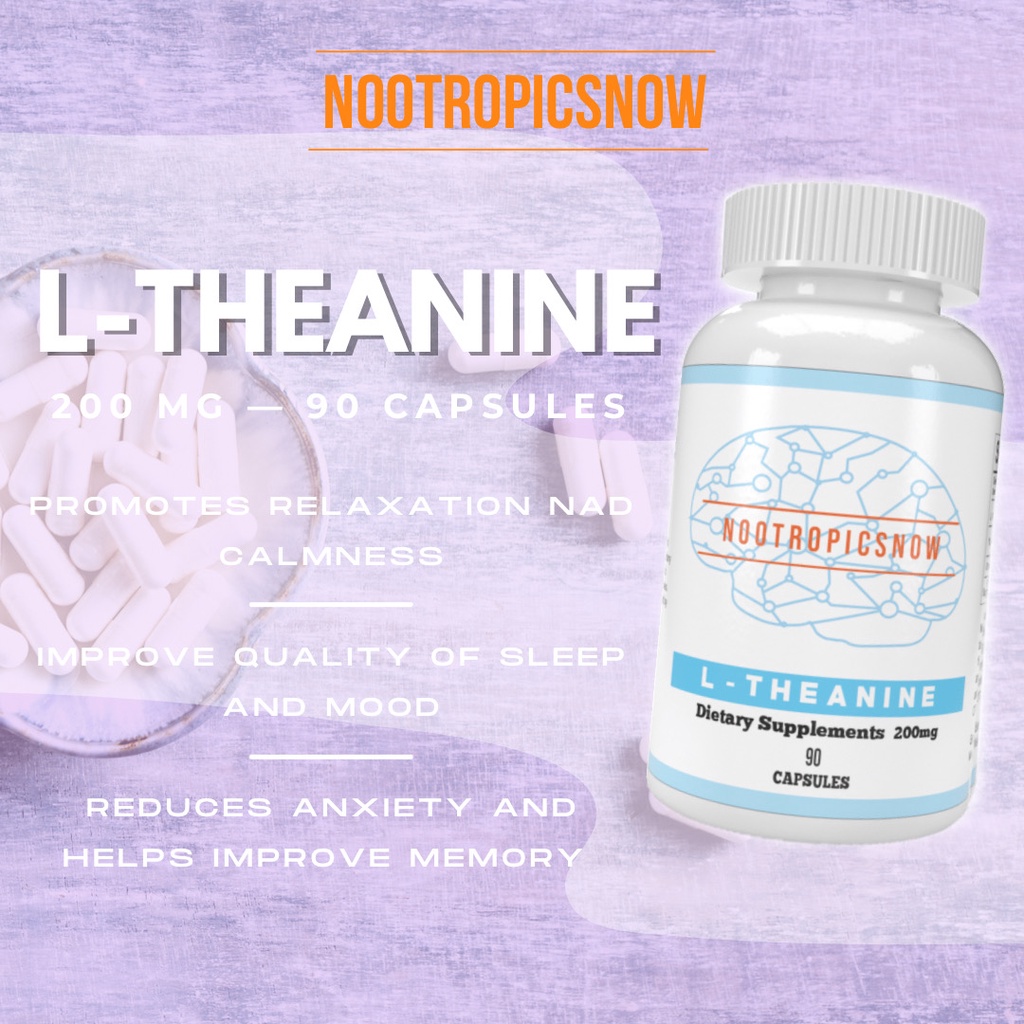
View Product-Nootropic-Brain-Support-Booster-Memory-Sleep-Supplement-i.202321183.5451568422)
4. Ginseng: An Ancient Herb for Memory
Ginseng has been used in traditional medicine for centuries to enhance cognitive function and energy levels. Studies have shown that ginseng can improve memory, attention, and overall cognitive performance.
Benefits:
May improve memory and cognitive function.
May enhance attention and focus.
May increase energy levels and reduce fatigue.
Sources:
Ginseng supplements are available in various forms, including capsules, tablets, and extracts.
Ginseng tea can be consumed.
5. Bacopa Monnieri: An Ayurvedic Herb for Cognitive Enhancement
Bacopa monnieri is an herb used in Ayurvedic medicine for its cognitive-enhancing properties. Research suggests that bacopa can improve memory, learning, and cognitive processing speed.
Benefits:
May improve memory and learning.
May enhance cognitive processing speed.
May reduce anxiety and stress.
Sources:
Bacopa monnieri supplements are available in capsule form.
Consider this Bacopa Monnieri supplement:
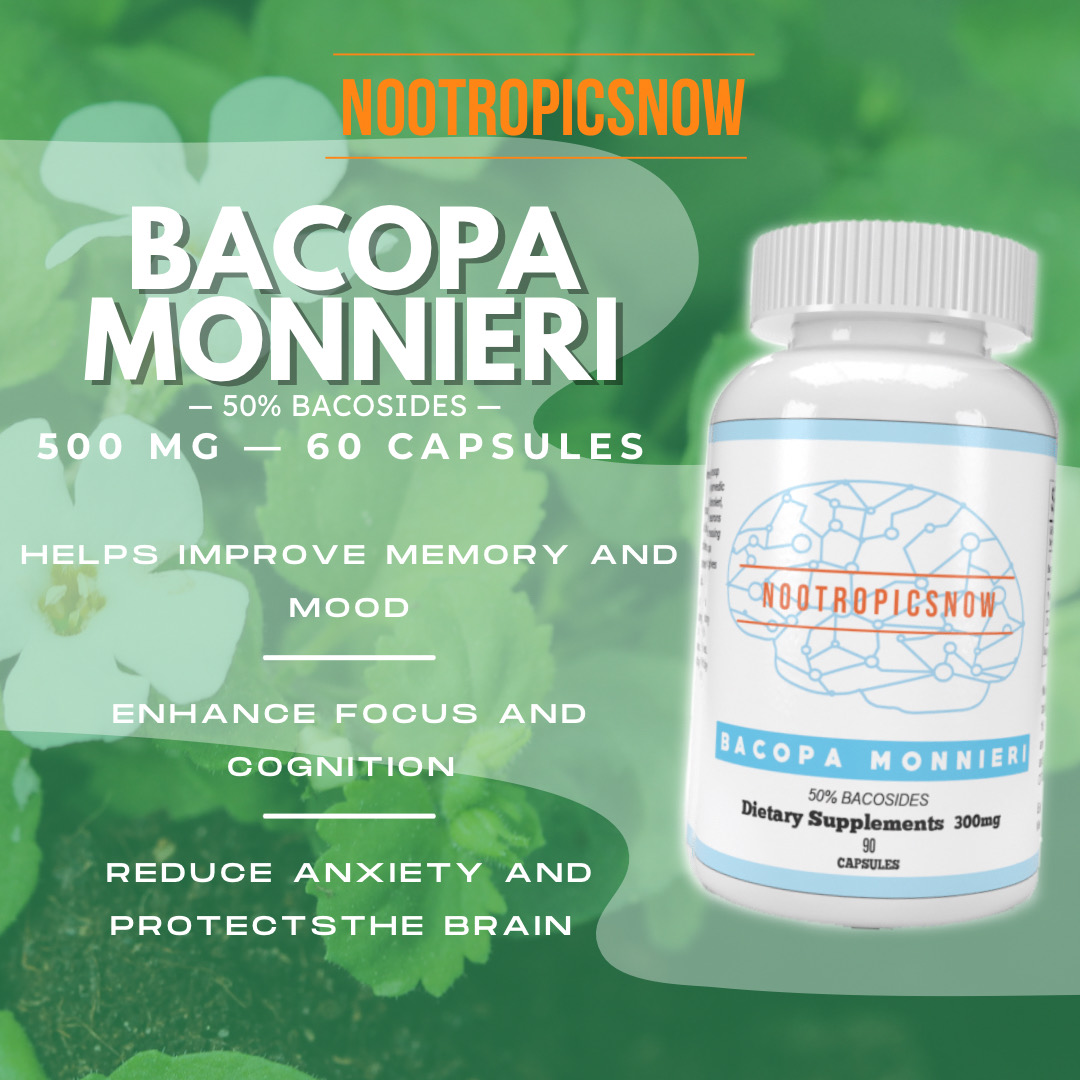
View Product
Incorporating Brain-Boosting Vitamins and Nutrients into Your Filipino Diet
The good news is that many of these brain-boosting vitamins and nutrients are readily available in the Philippines, either through diet or supplementation.
Embrace Filipino Cuisine: Many traditional Filipino dishes incorporate ingredients rich in these beneficial nutrients. For instance, dishes featuring dark leafy greens like kangkong (water spinach) and malunggay (moringa) are excellent sources of folate, vitamin E, and magnesium.
Prioritize Fish: Include fatty fish like bangus (milkfish) and galunggong (mackerel scad) in your diet at least twice a week to boost your omega-3 intake.
Snack Smart: Choose nuts and seeds as healthy snacks to increase your intake of vitamin E, magnesium, and omega-3 fatty acids.
Spice it Up: Add turmeric to your cooking to benefit from its antioxidant and anti-inflammatory properties.
Supplement Wisely: If you are unable to obtain adequate amounts of these vitamins and nutrients through diet alone, consider taking supplements. Consult with a healthcare professional to determine the appropriate dosage and ensure safety.
Cautions and Considerations
While vitamins and nutrients can play a significant role in supporting brain health and memory, it’s important to approach supplementation with caution:
Consult with a healthcare professional: Before starting any new supplement regimen, consult with a doctor or registered dietitian to ensure it’s safe and appropriate for you. They can help you identify any potential interactions with medications you’re taking and recommend the right dosage.
Start with a balanced diet: Focus on consuming a variety of nutrient-rich foods as the foundation of your brain health strategy. Supplements should be used to complement, not replace, a healthy diet.
Be aware of potential side effects: Some supplements can cause side effects, especially at high doses. Pay attention to your body’s response and discontinue use if you experience any adverse effects.
Choose reputable brands: Select supplements from reputable brands that have been tested for quality and purity.
Avoid excessive doses: More isn’t always better. Excessive doses of certain vitamins can be harmful.
Lifestyle Factors for Brain Health
In addition to vitamins and nutrients, certain lifestyle factors can significantly impact brain health and memory:
Regular exercise: Physical activity promotes blood flow to the brain, stimulates the growth of new brain cells, and enhances cognitive function. Aim for at least 30 minutes of moderate-intensity exercise most days of the week.
Adequate sleep: Sleep is crucial for memory consolidation and cognitive function. Aim for 7-8 hours of quality sleep per night.
Stress management: Chronic stress can damage brain cells and impair cognitive function. Practice stress-reducing techniques such as meditation, yoga, or spending time in nature.
Social engagement: Social interaction stimulates the brain and helps maintain cognitive function. Engage in social activities regularly and stay connected with friends and family.
Mental stimulation: Challenge your brain with mentally stimulating activities such as reading, puzzles, learning a new skill, or playing brain games.
Conclusion
Maintaining a sharp memory and optimal brain function requires a holistic approach that encompasses a balanced diet, strategic supplementation, and healthy lifestyle habits. In the Philippines, a wealth of resources are available to support your journey to better brain health. By understanding the power of vitamins, nutrients, and lifestyle factors, you can proactively protect your cognitive abilities and enjoy a fulfilling life at any age. Remember to consult with a healthcare professional before starting any new supplement regimen to ensure it’s safe and appropriate for your individual needs.
Best Vitamins for Brain Memory in the Philippines
Maintaining optimal brain health is crucial for cognitive function and memory retention, irrespective of age. While a balanced diet is fundamental, specific vitamins and nutrients can provide added support, enhancing memory and overall cognitive performance. This section delves into the best vitamins and nutrients available in the Philippines that are known to boost brain health and memory.
Understanding the Importance of Brain Health
Before exploring specific vitamins, let’s understand why prioritizing brain health is essential. The brain, a complex organ, requires a constant supply of nutrients to function efficiently. Key nutrients support neurotransmitter production, protect against oxidative stress, and promote healthy blood flow, all critical for maintaining memory and cognitive skills. As we age, the brain’s natural ability to perform these functions may decline, making targeted supplementation even more valuable.
Top Vitamins and Nutrients for Memory and Cognitive Function
Several vitamins and nutrients have demonstrated significant benefits for brain health, and they are readily available in the Philippines through diet or supplementation.
1. Vitamin B12: The Cognitive Powerhouse
Vitamin B12 is vital for maintaining healthy nerve cells and producing DNA and RNA, the body’s genetic building blocks. It also plays a crucial role in the synthesis of neurotransmitters, chemical messengers that transmit signals between nerve cells in the brain.
Benefits: A sufficient intake of Vitamin B12 improves cognitive function, memory, and concentration. It also helps prevent cognitive decline associated with aging. Furthermore, it can mitigate symptoms of neurological conditions such as Alzheimer’s disease.
Sources: Natural sources include meat, poultry, fish, eggs, and dairy products. For vegetarians and vegans, fortified plant-based foods (e.g., fortified cereals, plant-based milk alternatives) and supplements are excellent alternatives. Vitamin B12 supplements are widely available in pharmacies and health stores across the Philippines.
Deficiency: B12 deficiency can manifest as cognitive impairment, fatigue, depression, and neurological problems. Older adults, individuals with gastrointestinal disorders, and those following strict vegetarian diets are at higher risk of deficiency.
2. Vitamin D: The Sunshine Vitamin for Your Brain
Vitamin D, often called the “sunshine vitamin,” is essential for overall health, including brain function. Receptors for Vitamin D are widely distributed throughout the brain, suggesting its importance for optimal cognitive performance.
Benefits: Research indicates that Vitamin D improves memory, attention, and cognitive processing speed. It also helps protect against age-related cognitive decline and neurodegenerative diseases. Higher Vitamin D levels are associated with better cognitive test performance and reduced risk of dementia.
Sources: The primary source of Vitamin D is sunlight exposure. However, factors such as skin pigmentation, latitude, and time of year can affect Vitamin D synthesis. Other sources include fatty fish (salmon, mackerel, tuna), egg yolks, and fortified foods like milk and cereals. Vitamin D supplements are widely available in the Philippines, especially during the rainy season when sunlight exposure is limited.
Deficiency: Vitamin D deficiency is common, especially in individuals with limited sun exposure. Symptoms of deficiency include fatigue, bone pain, muscle weakness, and cognitive impairment. Regular blood tests can help assess Vitamin D levels, enabling appropriate supplementation.
3. Omega-3 Fatty Acids: Fueling Brain Cells
Omega-3 fatty acids, particularly eicosapentaenoic acid (EPA) and docosahexaenoic acid (DHA), are essential fats that play a vital role in brain health. They are structural components of brain cell membranes and are involved in numerous brain functions.
Benefits: Omega-3 fatty acids enhance cognitive function, memory, and learning. They also have anti-inflammatory properties, which help protect the brain against damage and age-related decline. Additionally, Omega-3s can improve mood and reduce the risk of depression, a condition often linked to cognitive impairment.
Sources: The best sources of Omega-3 fatty acids are fatty fish like salmon, mackerel, sardines, and tuna. Plant-based sources include flaxseeds, chia seeds, walnuts, and algal oil supplements. Fish oil and algal oil supplements are readily available in the Philippines. When choosing a supplement, look for products that are high in EPA and DHA.
Deficiency: Omega-3 deficiency can lead to cognitive impairment, mood disorders, and an increased risk of neurodegenerative diseases. Individuals who do not consume fatty fish regularly may benefit from Omega-3 supplementation.
4. Vitamin E: The Antioxidant Shield
Vitamin E is a powerful antioxidant that protects brain cells from oxidative stress caused by free radicals. Oxidative stress can damage brain cells and contribute to cognitive decline.
Benefits: Vitamin E enhances cognitive function, memory, and learning by protecting brain cells from damage. It can also help reduce the risk of age-related cognitive decline and neurodegenerative diseases. Studies suggest that Vitamin E may slow the progression of Alzheimer’s disease.
Sources: Vitamin E is found in various foods, including nuts (almonds, walnuts), seeds (sunflower seeds), vegetable oils (wheat germ oil, sunflower oil), and dark leafy greens (spinach, kale). Vitamin E supplements are also available in the Philippines.
Deficiency: Vitamin E deficiency is rare but can occur in individuals with malabsorption disorders. Symptoms of deficiency include muscle weakness, vision problems, and cognitive impairment.
5. B Vitamins (B6, B9, Folate): Supporting Neurotransmitter Synthesis
B vitamins, including B6 (pyridoxine), B9 (folate), and B12, work synergistically to support brain health. They are essential for the production of neurotransmitters and the metabolism of homocysteine, an amino acid linked to cognitive decline.
Benefits: B vitamins enhance cognitive function, memory, and mood. They also help protect against age-related cognitive decline and neurodegenerative diseases. Folate is particularly important for pregnant women as it plays a crucial role in fetal brain development.
Sources: B vitamins are found in a wide variety of foods, including meat, poultry, fish, eggs, dairy products, beans, lentils, dark leafy greens, and fortified grains. B vitamin supplements are readily available in the Philippines.
Deficiency: B vitamin deficiency can lead to cognitive impairment, fatigue, depression, and neurological problems. Older adults, individuals with malabsorption disorders, and those following strict vegetarian diets are at higher risk of deficiency.
Additional Nutrients for Optimal Brain Performance
Besides the vitamins listed above, several other nutrients can contribute to brain health and memory.
1. Magnesium: Enhancing Synaptic Plasticity
Magnesium is an essential mineral involved in hundreds of enzymatic reactions in the body, including those that affect brain cells. It plays a crucial role in synaptic plasticity, the brain’s ability to form new connections and adapt to new information.
Benefits: Magnesium improves long-term memory, learning, and cognitive processing speed. It also helps reduce anxiety and stress, which can negatively impact cognitive function. Studies suggest that Magnesium may improve sleep quality, which is essential for brain health.
Sources: Magnesium is found in foods such as dark leafy greens (spinach, kale), nuts (almonds, cashews), seeds (pumpkin seeds), whole grains, and dark chocolate. Magnesium supplements are also available in the Philippines.
Deficiency: Magnesium deficiency is common, especially in individuals with poor diets or chronic health conditions. Symptoms of deficiency include muscle cramps, fatigue, anxiety, and cognitive impairment.
2. Curcumin: The Anti-Inflammatory Brain Booster
Curcumin is the active compound in turmeric, a spice widely used in Asian cuisine. It has potent anti-inflammatory and antioxidant properties, which can protect the brain from damage and improve cognitive function.
Benefits: Curcumin improves working memory, attention, and mood. It may also help prevent age-related cognitive decline and neurodegenerative diseases like Alzheimer’s disease. Some studies suggest that Curcumin may promote the growth of new brain cells (neurogenesis).
Sources: The primary source of Curcumin is turmeric. While adding turmeric to your diet can provide some benefits, taking a Curcumin supplement may be more effective as it is better absorbed by the body. Look for Curcumin supplements that contain piperine (black pepper extract) to enhance absorption. These supplements are commonly found in health stores across the Philippines.
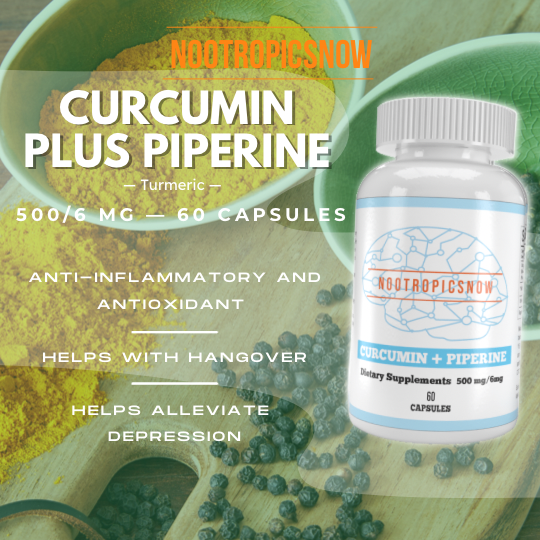
View Product
Side Effects: Curcumin is generally safe, but high doses may cause gastrointestinal upset in some individuals.
3. L-Theanine: The Calm and Focused Amino Acid
L-Theanine is an amino acid found in green tea. It has calming and relaxing effects on the brain without causing drowsiness.
Benefits: L-Theanine improves attention, focus, and working memory. It also helps reduce anxiety and stress, which can impair cognitive function. L-Theanine works synergistically with caffeine to enhance cognitive performance.
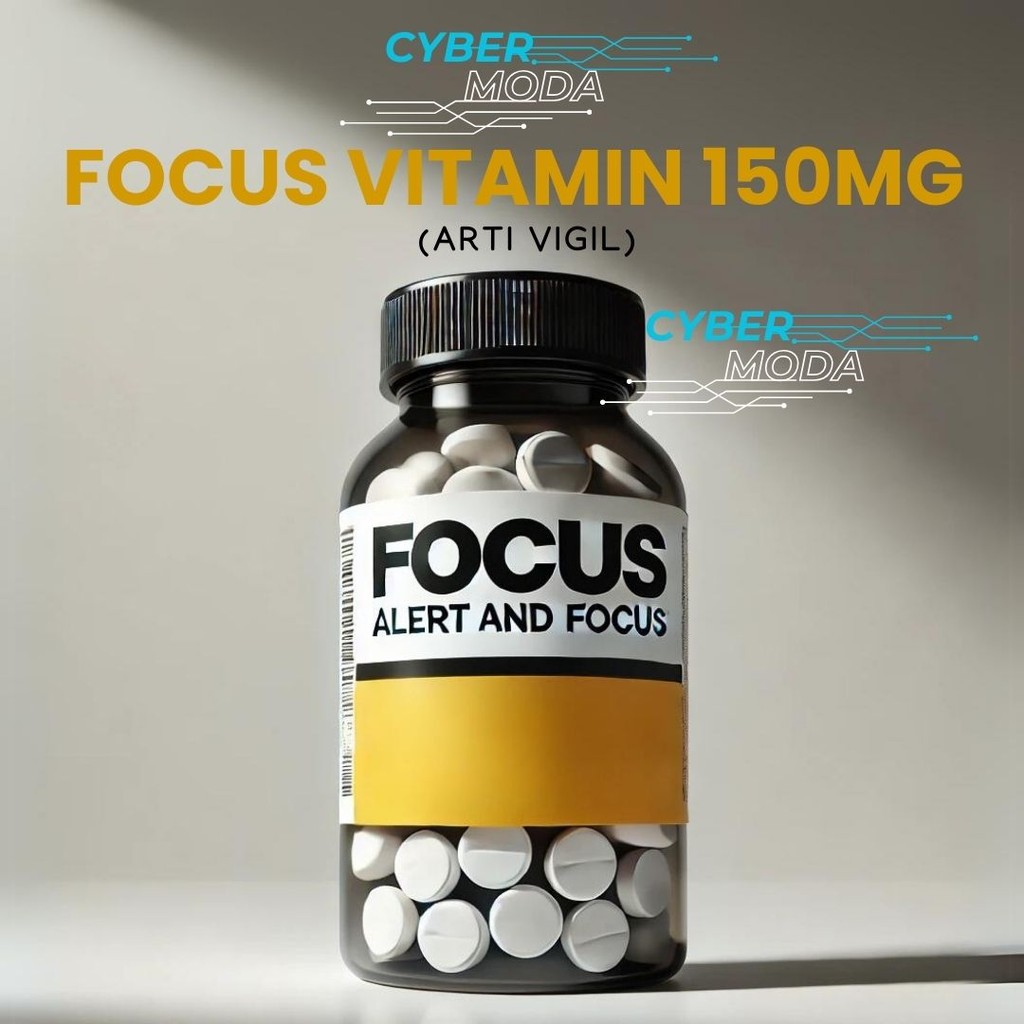
View Product
Sources: The primary source of L-Theanine is green tea. L-Theanine supplements are also available in the Philippines.
Side Effects: L-Theanine is generally safe and well-tolerated.
4. Ginseng: The Ancient Cognitive Enhancer
Ginseng is a herbal supplement used for centuries in traditional medicine. It is believed to have cognitive-enhancing properties.
Benefits: Ginseng improves memory, attention, and cognitive processing speed. It may also help lower the risk of degenerative brain diseases like Alzheimer’s disease.
Sources: Ginseng supplements are widely available in the Philippines in various forms, including capsules, tablets, and extracts.
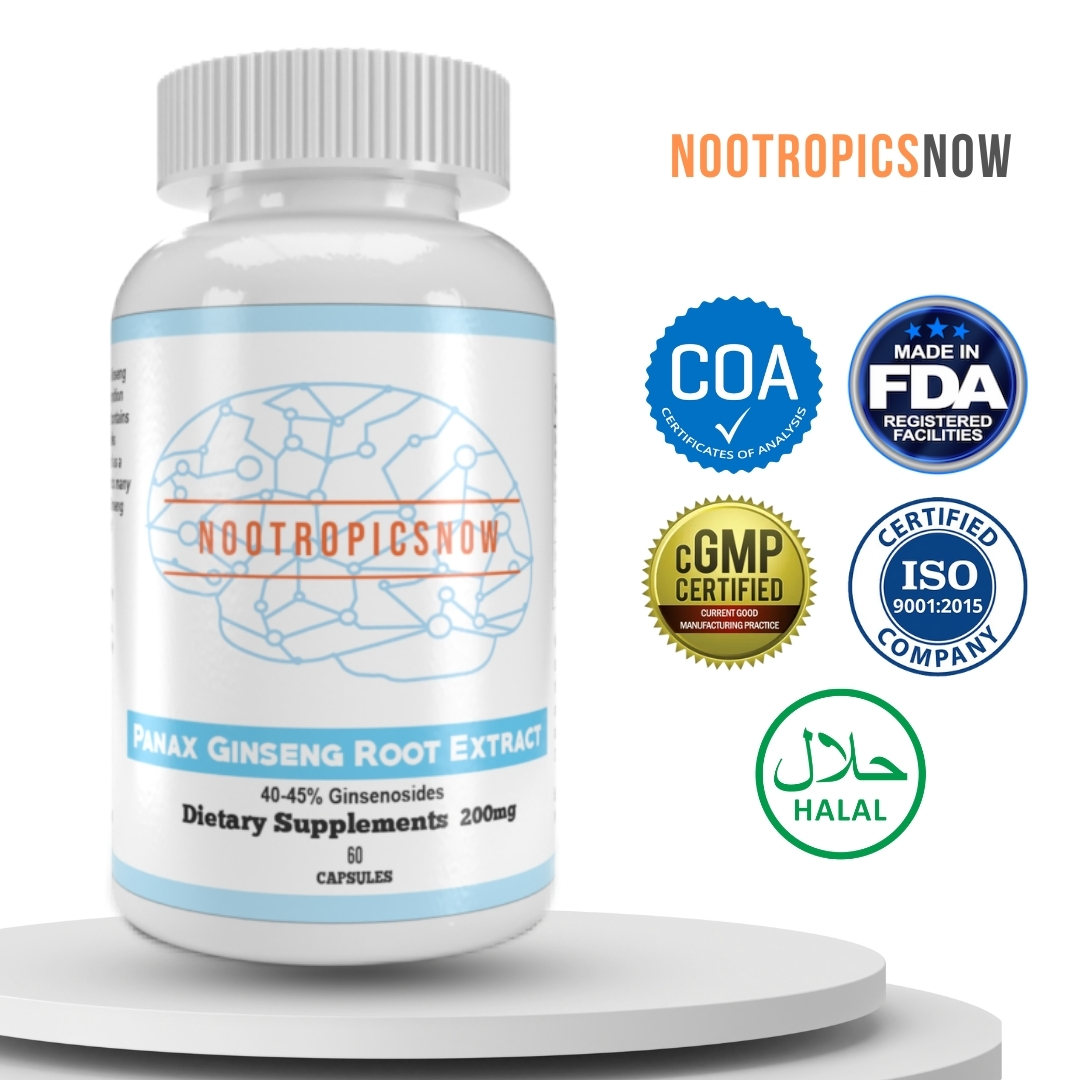
View Product
Side Effects: Ginseng is generally safe, but some individuals may experience insomnia, anxiety, or digestive upset.
5. Bacopa Monnieri: The Memory-Boosting Herb
Bacopa Monnieri is an herb traditionally used in Ayurvedic medicine. It is believed to have cognitive-enhancing properties, particularly for memory.
Benefits: Bacopa Monnieri improves verbal learning, delayed word recall, memory acquisition, and anxiety reduction. It may also help protect brain cells from damage.

View Product
Sources: Bacopa Monnieri supplements are available in the Philippines in capsule form.
Side Effects: Bacopa Monnieri is generally safe, but some individuals may experience mild digestive upset.
Considerations for Supplementation in the Philippines
When considering vitamin and nutrient supplementation in the Philippines, keep the following in mind:
Consult a Healthcare Professional: Before starting any new supplements, consult with a healthcare professional to ensure they are safe and appropriate for your individual needs. This is particularly important if you have any underlying health conditions or are taking other medications.
Choose High-Quality Supplements: Opt for reputable brands that have been tested for purity and potency. Look for supplements that have been certified by a third-party organization.
Follow Dosage Recommendations: Adhere to the recommended dosage instructions on the supplement label. Taking too much of certain vitamins and nutrients can be harmful.
Combine with a Healthy Lifestyle: Vitamins and supplements are most effective when combined with a healthy diet, regular exercise, and adequate sleep.
Be Patient: It may take several weeks or months to experience the full benefits of vitamin and nutrient supplementation.
Conclusion: Nurturing Your Brain for a Brighter Future
Maintaining optimal brain health is essential for a fulfilling life. While a balanced diet is fundamental, certain vitamins and nutrients can provide additional support, enhancing memory, cognitive function, and overall well-being. By incorporating these vitamins and nutrients into your diet or through supplementation, you can proactively nurture your brain and support its long-term health. In the Philippines, many options are available, but remember to consult with a healthcare professional for personalized guidance.







